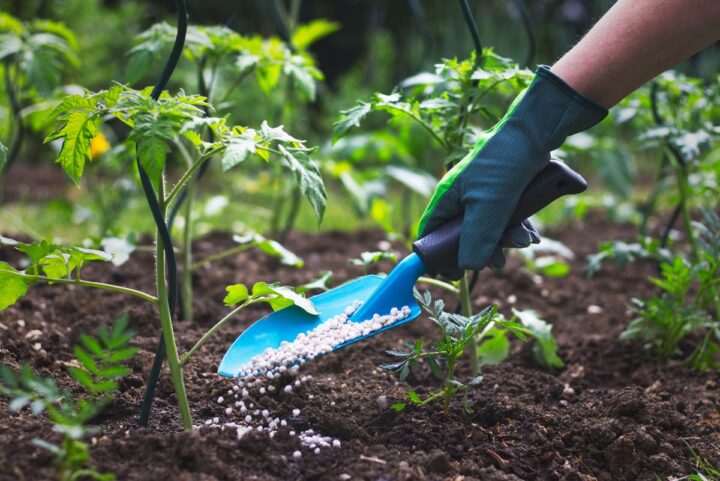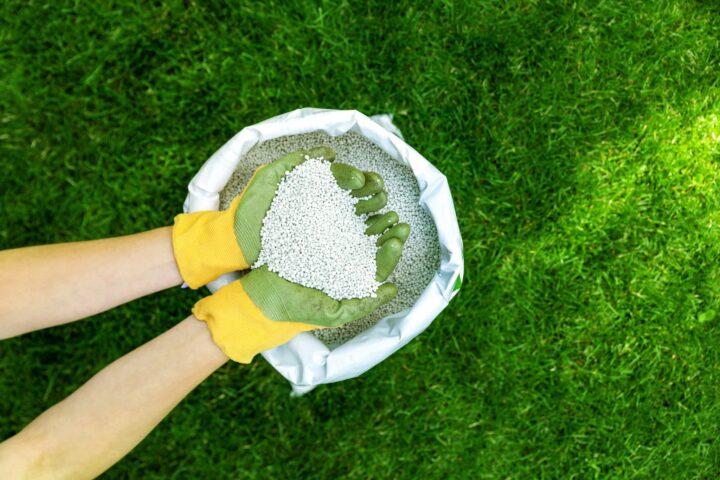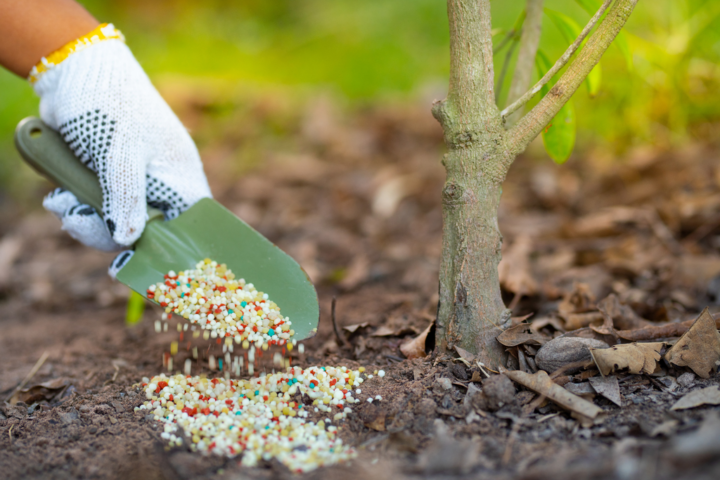Fertilizers are vital in nurturing our plant life’s growth and robustness. They supply the requisite nutrients that plants require to flourish and prosper. However, it’s crucial to understand that fertilizers come in various types and are not equally effective.
Knowing what to look for when purchasing can greatly impact your gardening results. This piece will delve into the key attributes of an effective fertilizer and their importance.
Understanding the Basics of Fertilizer

Fertilizer is a substance added to soil or land to enhance fertility and promote plant growth. It’s packed with essential nutrients like nitrogen, phosphorus, and potassium – commonly called NPK.
These nutrients are vital to plant health and development, but the proportions and additional components can vary greatly from one fertilizer to another. So, what should you be looking out for?
Importance of Nitrogen in Fertilizers
Nitrogen is a critical nutrient for plants; it’s primarily responsible for leaf and stem growth and gives plants their vibrant green color. A fertilizer that promises a fast green-up using only 16% nitrogen is beneficial.
This lower percentage of nitrogen means less risk of “burning” your plants with too much nitrogen while still providing the necessary amount for healthy growth. The result is a lush, green garden pleasing to the eye and indicating robust plant health.
The Role of Potassium in Plant Health

Potassium, the third number in the NPK ratio, is pivotal in overall plant health. It aids in water regulation within the plant and supports various physiological processes.
Opting for a fertilizer with quality potassium bolsters plant health and adds less salinity to your soil. Excessive salt in the soil can lead to a buildup that hinders water absorption, so a lower-salt fertilizer is a wise choice for long-term soil health.
The Benefits of Humic Acid in Fertilizers
In addition to the primary nutrients, some fertilizers contain additional beneficial ingredients. One such ingredient is humic acid. A fertilizer containing 8.9% humic acid can improve nutrient uptake and mitigate plant environmental stress.
Humic acid enhances the soil’s nutrient-holding capacity, allowing plants to access more nutrients. It also helps buff plants against stressors like temperature extremes and disease, significantly impacting plant health and productivity.
Choosing the Right Fertilizer for Different Grass Types

The type of grass you have matters when it comes to lawn care. Some fertilizers are better suited for certain types of grass than others. However, finding a fertilizer that works excellently for all grass types can simplify your lawn care routine.
Furthermore, a small-sized fertilizer is ideal for long and short-cut grass. The small size allows for even distribution, ensuring all parts of your lawn receive the nutrients they need.
Coverage Area of Fertilizer Application
Lastly, consider the coverage area. If you have a large lawn or garden, you want a fertilizer that goes a long way. A good quality fertilizer should be able to cover around 15,000 square feet. This broad coverage ensures you get the most value for your money and reduces the frequency of application necessary, saving you time and effort in the long run.
Importance Of Trustpilot Reviews

Trustpilot reviews have become vital in today’s digital shopping era, offering first-hand experiences and insights from users of specific products, including fertilizers. These reviews provide valuable information about the product’s effectiveness, ease of use, and whether it fulfills its claims. They also shed light on the company’s customer service, which can be a deciding factor for many shoppers.
Furthermore, Trustpilot reviews allow for comparing different brands and types of fertilizers. By perusing these reviews, you can gather data about various products, ultimately guiding you toward an informed decision that best suits your garden’s needs. While reviews are highly beneficial, they should complement other considerations, such as your garden’s specific requirements and the product’s ingredients and claims.
Frequently Asked Questions (FAQs)
Below are some of the most frequently asked questions regarding fertilizers, how they work, and the ingredients they contain.
Q1: What is the role of nitrogen in fertilizers?
A1: Nitrogen is crucial in plant growth, primarily responsible for leaf and stem growth and giving plants their vibrant green color. A fertilizer with a lower percentage of nitrogen, like 16%, offers the necessary amount for healthy growth without the risk of “burning” the plants.
Q2: How does potassium contribute to plant health?
A2: Potassium aids in water regulation within the plant and supports various physiological processes. A fertilizer with quality potassium supports plant health and adds less salinity to your soil, preventing excessive salt buildup that hinders water absorption.
Q3: Why is humic acid important in fertilizers?
A3: Humic acid enhances the soil’s nutrient-holding capacity, allowing plants to access more nutrients. It also buffers plants against environmental stressors like temperature extremes and disease.
Q4: Can one type of fertilizer be used for all grass types?
A4: Some fertilizers are formulated to work well with all grass types. However, checking the product details to ensure it suits your lawn type is always best.
Q5: How much area should a good quality fertilizer cover?
A5: A good quality fertilizer should cover around 15,000 square feet. This broad coverage ensures you get the most value for your money and reduces the frequency of application necessary.
Q6: Why are Trustpilot reviews important when shopping for fertilizer?
A6: Trustpilot reviews offer real-life experiences and insights from individuals who have used a particular fertilizer. They provide information on the product’s effectiveness, ease of use, and customer service, helping you make an informed decision.
Wrapping Up: Making an Informed Choice for Your Garden’s Fertility
Navigating fertilizer online doesn’t have to feel like an overwhelming chemistry test. Awareness of key aspects can simplify the selection process, enabling you to make a well-informed choice.
The goal is to choose a fertilizer that provides comprehensive nourishment, bolsters the health of your soil, and aligns with your unique gardening requirements. With these tips, you’re heading to a flourishing and vibrant garden—happy gardening, and thanks so much for taking the time to read this article.




